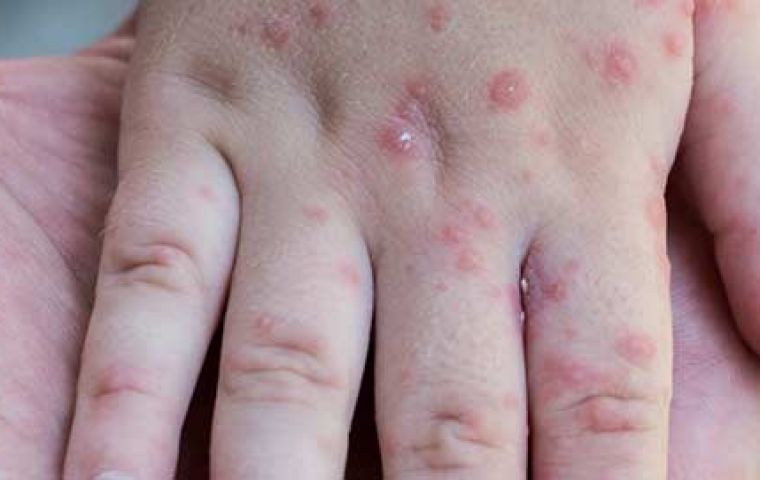MercoPress. South Atlantic News Agency
Monkeypox not a global emergency for now, says WHO
 In Latin America, cases have been detected in Argentina, Brazil, and Colombia.
In Latin America, cases have been detected in Argentina, Brazil, and Colombia. The World Health Organization (WHO) has come to the conclusion following an emergency meeting that 3,200 cases and only one death due to monkeypox globally are not enough to consider the malady a global emergency, it was announced.
WHO Director-General Tedros Adhanom Ghebreyesus said that “at the moment the situation does not constitute a public health emergency of international concern, which is the highest level of alert that WHO can issue.”
“The emergency committee shared its serious concerns about the scale and speed of the current outbreak,” he added.
Cases of the disease have been increasing since May beyond the countries where it was endemic in West and Central Africa and are especially focused in Europe. So far, 3,200 cases and one death have been reported in some 50 countries.
Symptoms of the disease include fever, headache, swollen lymph nodes, muscle pain, and dystonia. Rashes appear on the face, palms of the hands, and soles of the feet; lesions, pustules, and scabs, all of which subside in about three weeks.
The WHO's emergency committee held a meeting in Geneva Thursday to assess whether the outbreak constituted a “public health emergency of international concern.”
A declaration of the international emergency creates the conditions for an increase in coordination among countries to curb the circulation of the virus. Currently, COVID-19 and polio hold that category.
Since the beginning of May, the monkeypox has rapidly spread throughout Europe, particularly in London, Madrid, and Lisbon, and increasingly so in Berlin and Paris, while cases have also been reported to be on the rise in Belgium, the Netherlands, and Italy.
Monkeypox is a zoonotic disease whose reservoir is in small rodents in central and western Africa. It spreads onto humans through fluids, especially during sexual intercourse but also through mere close contact with an infected person or with shared linens or other surfaces.
In Latin America, cases have been detected in Argentina, Brazil, and Colombia.




Top Comments
Disclaimer & comment rulesCommenting for this story is now closed.
If you have a Facebook account, become a fan and comment on our Facebook Page!